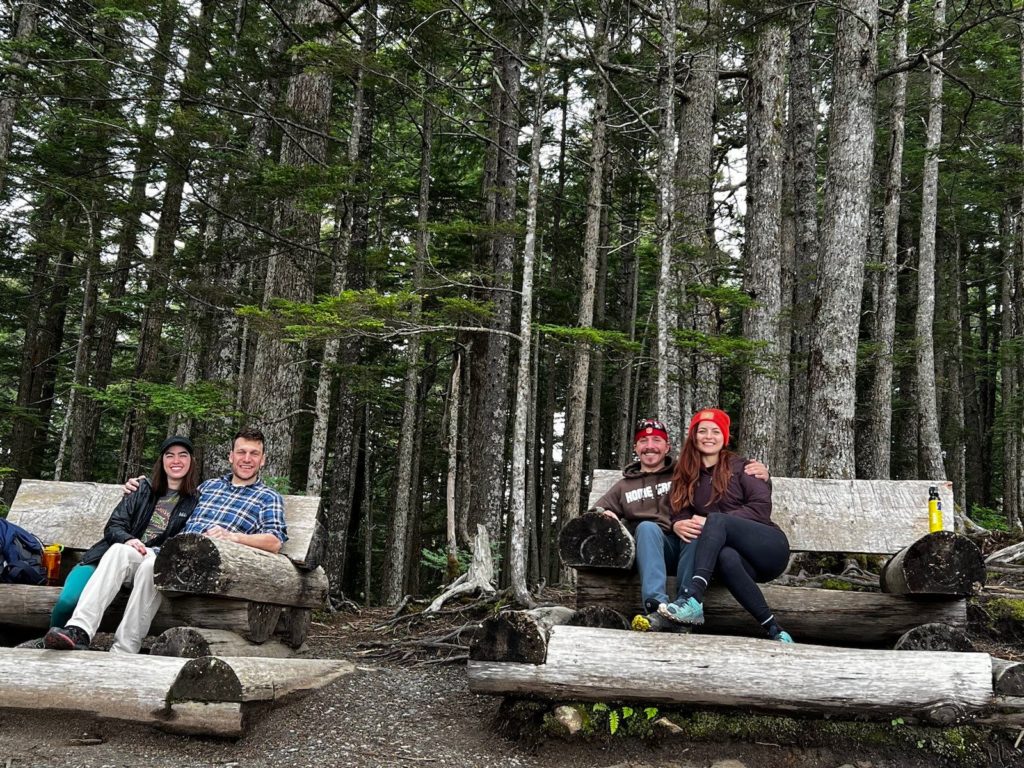
Sen. Forrest Dunbar said he will continue to focus on bipartisanship and good governance in order to support jobs, quality of life, and public safety in Alaska.
Dunbar currently serves to represent District J in East Anchorage within the Alaska state Senate. Previously, he served in the Assembly for seven years.
While his district is distinctly urban in comparison to the majority of Alaska, Dunbar said his time living in Cordova remains a guiding principle of his views that both urban and rural Alaska thrive off of mutual success.
“We very much need each other,” he said of urban Anchorage and surrounding rural communities. “Anchorage can’t thrive if the rest of the state suffers.”
Dunbar said he feels that the legislation he supports in the state Senate can serve both types of communities by upholding common values such as affordable cost of living and increasing employment opportunities.
One of the ways that Dunbar has worked toward serving all Alaskans, not just those in his particular district, is to encourage good governance and bipartisan cooperation. One of the primary focal points of his campaign for the state Senate was to create a bipartisan coalition, a goal which a number of colleagues achieved.
Dunbar said that the group has agreed to uphold good governance by focusing not on their differences, but rather on programs that increase quality of life across the board.
“We waste as little time as possible on divisive issues,” he said.

The coalition, which is currently composed of nine Democrats and eight Republicans, has so far focused on education funding, energy costs, and supporting public employees. In May, the bipartisan coalition helped vote to increase education funding by $680 per student to account for inflation, an action that was later vetoed by Gov. Mike Dunleavy in June. Dunbar said he is disappointed in the governor’s veto which essentially halved the funds that the senate had hoped to make available for education.
Dunbar represents one of the poorest district in Anchorage and said this, as well as input from other communities, helped continue to motivate his efforts to support school funding. Dunbar is passionate about education — his mother was an educator and both of his parents originally came to Alaska to attend the University of Alaska.
Dunbar noted that the majority of Covid-era federal funding for schools has now been exhausted, and school boards are feeling financial pressure, causing them to cut core programming.
“We had a number of people from school boards from all over the state, including Cordova, talking to us about the challenges they’ve had with increased class sizes and squeezed budgets,” he said.
At the university level as well, Dunbar wants to see Alaska become a place that young people from other states view as a solid option that will begin a path towards professional success.
“We can’t keep cutting our university and expect to be competitive,” he said.
In regards to quality of life in the state, Dunbar noted that young people and seniors are those most vulnerable to ineffective government budgets.
The aging of the Alaska workforce has been a major topic in the state legislature within the past year. The bipartisan coalition worked to solidify public worker opportunities and pensions this past year through Senate Bill 88 in the hopes of not only retaining better workers for longer, but also to support them after retirement.
Dunbar said that his passion behind increasing the quality of life for Alaska comes not only from speaking to constituents face-to-face but from his personal experience as well.
“I’m looking to get a home and start a family myself and it’s prohibitively expensive,” he said “People are leaving in part because they can’t find housing or quality childcare.”
Dunbar said all of the work the Senate is attempting to accomplish with affordable housing and job opportunities serve overlapping goals for Alaska’s population.
“Housing, childcare, quality of life and the workforce–all of these things are tied together. A lot of this is directly related to affordability,” he said.

Dunbar said he wants to support young working families, citing the example of lacking childcare affecting the workforce by taking one parent out of the workforce entirely. He added that supporting young people in Alaska means giving them a sense that they have a future within the state.
Dunbar believes that diversifying the economy into areas like tourism, remote work, and technology will not only give Alaskans opportunities, but hopefully attract remote workers who want to enjoy the unique experience of Alaska as well.
“A lot of people move here for a sense of adventure and we want this to be a place for that,” he said.
Much of the recent work accomplished by Dunbar and colleagues within the bipartisan coalition has been to support affordable housing. Dunbar, along with fellow Democrat Sen. Matt Claman, were co-sponsors on Senate Bill 77. The bill focuses on housing from two angles: the first is to help support new housing construction through tax exemptions, and secondly to increase taxes on properties that have become dilapidated beyond use.
Dunbar said the bill is a marriage of many different housing related ideas that have been successful elsewhere, and finds equal ground between tax exemption and tax increase.
“Conservative folks don’t ever want to increase taxes. But we don’t have sales or income tax so the funds have to come from somewhere,” Dunbar said of the bill.
He said that so far moderate Republicans have been good to work with on SB 77, and if the bill makes it to the house floor he is hopeful it will pass.
As for his ties to Cordova, Dunbar is thankful he had the chance to grow up in rural Alaska.
Dunbar said he feels that in many ways Cordova is on the cutting edge of rural advancements, and cited how impressed he is with Cordova Electric Cooperative’s recent endeavors.
Dunbar said he enjoyed coming back during a visit this summer and exploring the places that hold so much memory for him: from his old newspaper route along Whiteshed, to seeing the old Porter House where he lived for some time. Dunbar said growing up here gave him a unique perspective on life that he continues to carry with him in his current position within the state senate.
“I still very much feel that Cordova is my hometown,” he said. “It reminds me that Alaska is both an urban and a rural state, and I feel very fortunate to have experienced life in both of those places.”
This story was updated at 4:25 p.m. on Oct. 25 to accurately reflect specifics on statewide education funding, State Senate District J demographics and Dunbar’s family dynamic. Corrections: The bipartisan coalition increases education funding by $680 per student, Dunbar represents one of the poorest districts in Anchorage, and only his mom was an educator.














